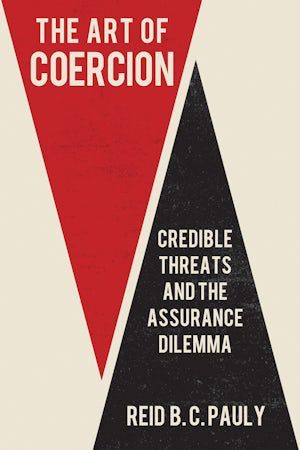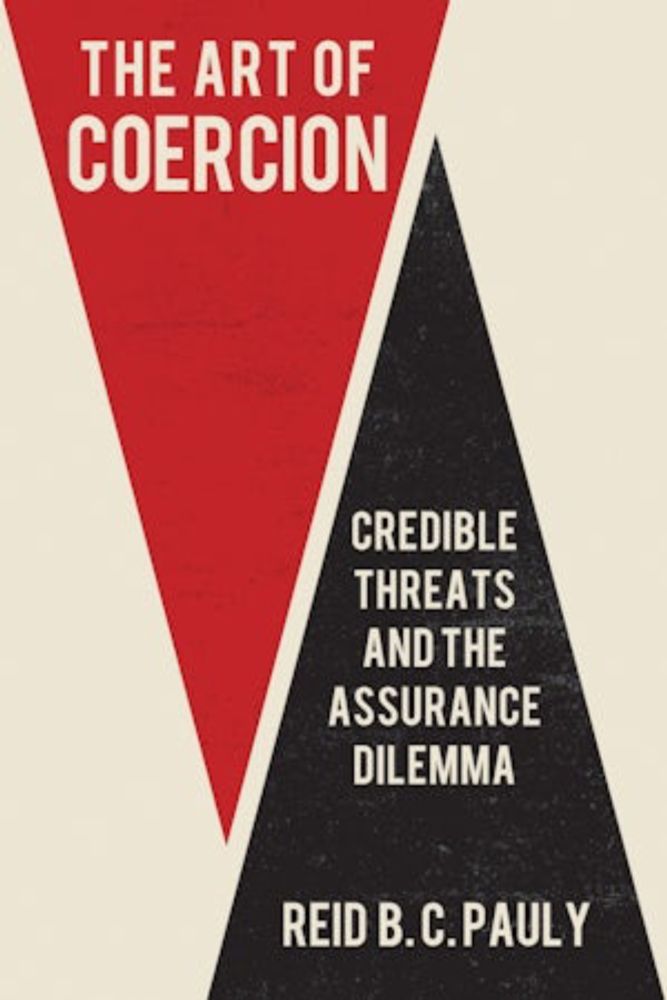Reid Pauly
@reidpauly.bsky.social
Assistant Professor of Nuclear Security and Policy at Brown University
And thank you @intsecurity.bsky.social and @mitpress.bsky.social for making the article version free for the next few months.
direct.mit.edu/isec/article...
direct.mit.edu/isec/article...

Damned If They Do, Damned If They Don't: The Assurance Dilemma in International Coercion
Abstract. Why do some coercive demands succeed but others fail? A dominant paradigm explains coercive outcomes by pointing to the credibility and severity of threats. The concept of coercive assurance...
direct.mit.edu
August 15, 2025 at 3:34 PM
And thank you @intsecurity.bsky.social and @mitpress.bsky.social for making the article version free for the next few months.
direct.mit.edu/isec/article...
direct.mit.edu/isec/article...
Thank you to all of the mentors and friends who helped me to write this book. Thank you to @cornellupress.bsky.social for believing in these ideas. Thank you to the Stanton Foundation for making the ebook free!
August 15, 2025 at 3:34 PM
Thank you to all of the mentors and friends who helped me to write this book. Thank you to @cornellupress.bsky.social for believing in these ideas. Thank you to the Stanton Foundation for making the ebook free!
This simple idea has profound implications. The actions we take to bolster our threats can undermine our assurances, making unnecessary violence more likely.
And it matters whenever and wherever governments practice coercion—compellence or deterrence.
And it matters whenever and wherever governments practice coercion—compellence or deterrence.
August 15, 2025 at 3:34 PM
This simple idea has profound implications. The actions we take to bolster our threats can undermine our assurances, making unnecessary violence more likely.
And it matters whenever and wherever governments practice coercion—compellence or deterrence.
And it matters whenever and wherever governments practice coercion—compellence or deterrence.



